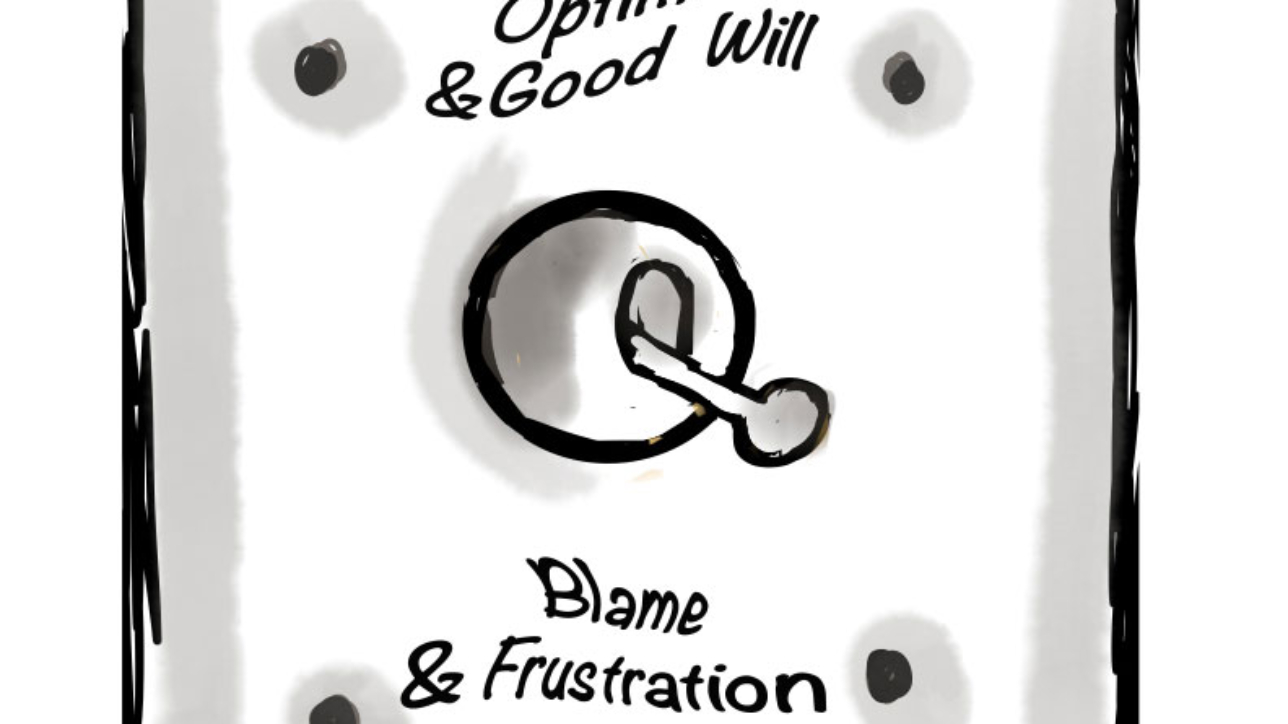Last Friday, I was on a plane heading home to California after three weeks in France visiting family and friends. I had left JP in Paris. He was taking care of his mother, and I was determined to take advantage of my solo flight to catch up on some long-delayed writing projects. I had decided to first read The Arab of the Future, an inspiring comic strip of several volumes stored in my computer. Mid-flight, as I was looking for my cable to recharge my computer, I realized that instead of having a computer cable, I had two cell phone cables! “Shoot! This is JP’s fault!” I concluded. “He borrowed my cables and mixed them up!” I mentally lamented. I was completely oblivious that I had borrowed his material too and was co-responsible for the mix up. My mind spun out of control. “See, I can’t count on anyone but myself. I need to be completely self-sufficient, materially and emotionally, to stay in control of my life…” I spent the rest of the flight watching uninteresting movies.
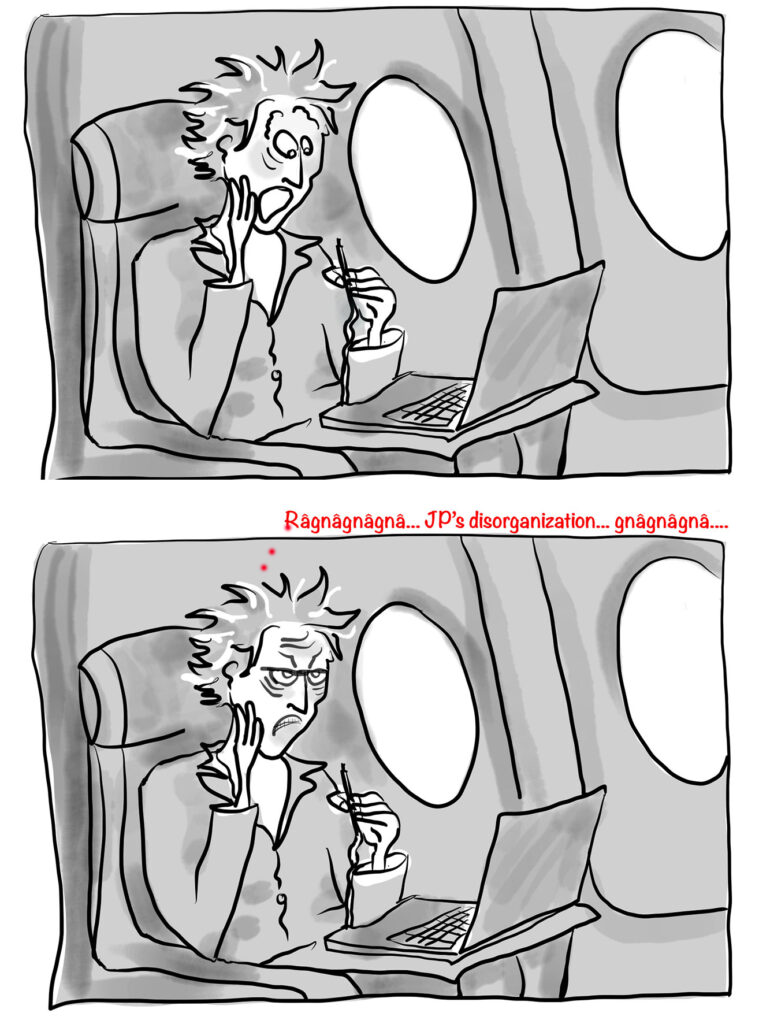
The day after I arrived home, I called JP to share my problem. I was expecting an apology, but he gave me a solution: borrow a cable from a friend nearby. I thought it was too casual and rude not to mention his disorganization and then put the burden of fixing the problem on my shoulders. I dismissed his suggestion and complained that it was a shame that I would have to buy another cable.
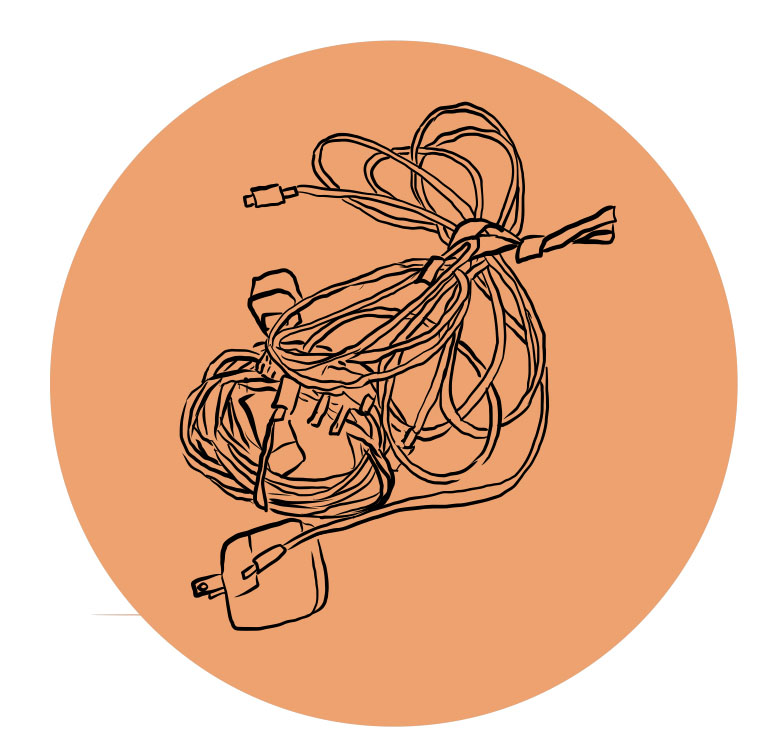
It’s a sign of a mature relationship to be able to hold high frustration toward our partner and high love and respect simultaneous.
In my case, I was in emotional regression.
I had the choice to remain petty and blaming, or to laugh at my ridiculousness. Obviously, I had experienced a micro-threat on the plane – a pinch – a loss of control (hot button) via my indispensable work tool (computer), followed by a sentiment of powerlessness and resentment that made any solution to the problem painful and too complicated. It was more comfortable to blame JP and be miserable, than be curious and find a sustainable solution. For example, find a pen, a piece of paper and write.
I texted a couple of friends and immediately found a cable to borrow. I picked up the cable and as a bonus, received lunch, a coffee, and good conversation. In the afternoon, as I was searching for a pair of scissors in the kitchen drawer, I found an extra cable that JP had put away, just in case.
Why didn’t he tell me when I called?
Because like myself, he wasn’t thinking clearly. Who can think clearly when they are being barraged by criticism?
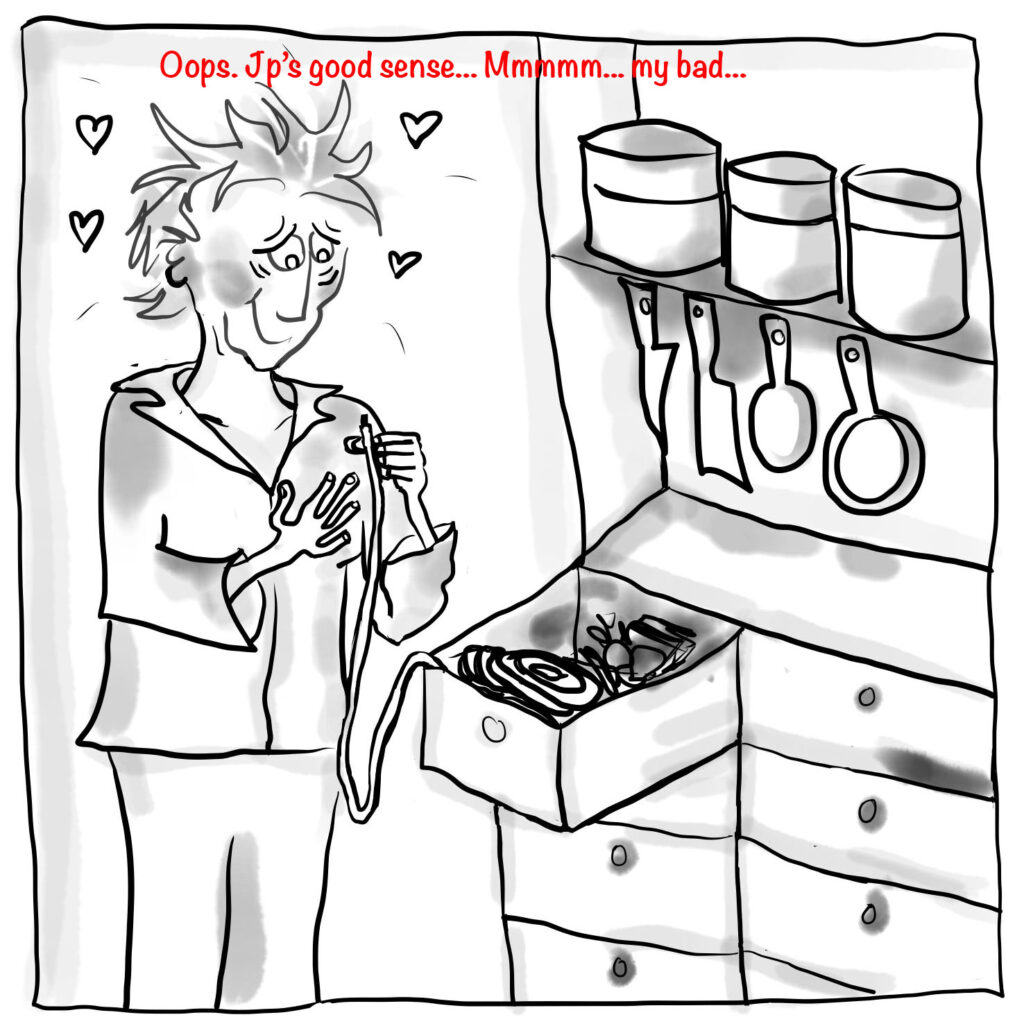
What was my frustration about? Was I so irrepressibly angry because I couldn’t use my computer? Or was I struggling with my writing projects, period? Or was it something else entirely? Guilt about leaving France? Free-floating anxiety because the world is so uncertain, scary, and confusing that I constantly need to control my husband and my cables?
It helps to return to the root of our emotional reactivity, but often the fastest way to re-center is to reconnect with our core goals and values, in other words what we really want most in life.
When I choose to indulge in my frustration and therefore blaming others, I blur access to my true resources. I undermine my agency, creativity, and good sense. I undermine others’ access to their resources as well. In the process, we all spiral down into our mutual resentment.
If JP has one complaint about me, it’s that I can easily become negative and pessimistic. I agree with him. It’s a holdout habit from childhood: Be prepared for the worst and avoid disappointment. It’s not helpful; it’s draining.
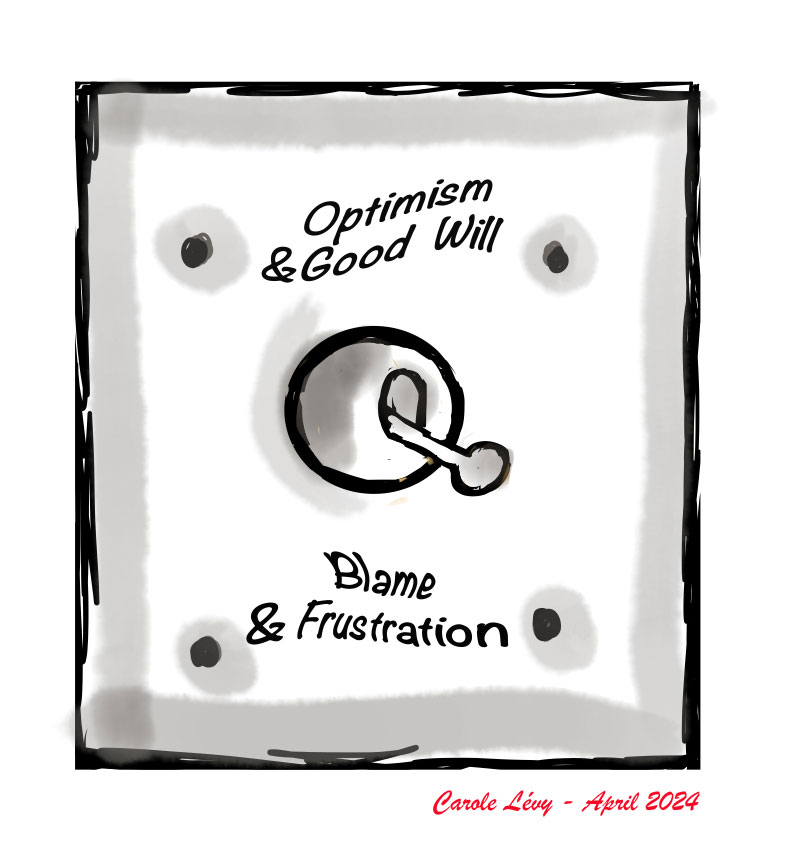
Conclusions
1- There is enough disturbance in the world; no need to add static to the atmosphere.
2- To recharge our battery, we can use cables. We can also plug our mind into the field of vibrant possibilities by switching to our generous and kind spirit. The missing piece can better be solved by staying calm and pushing the button of core goals and good will. Often, the solution will then come to us effortlessly, like a bit of magic!

